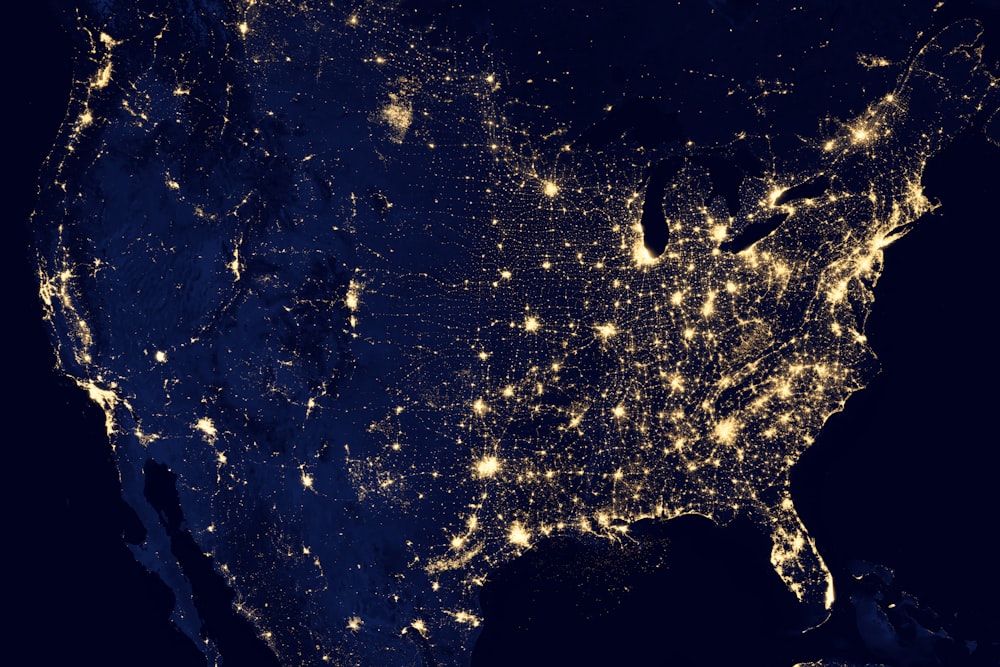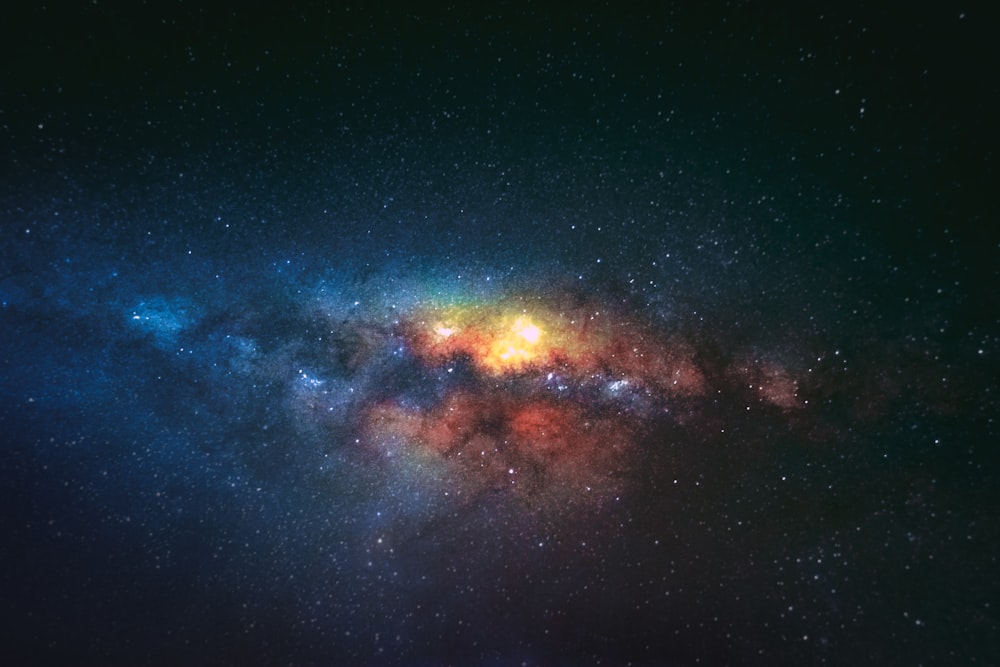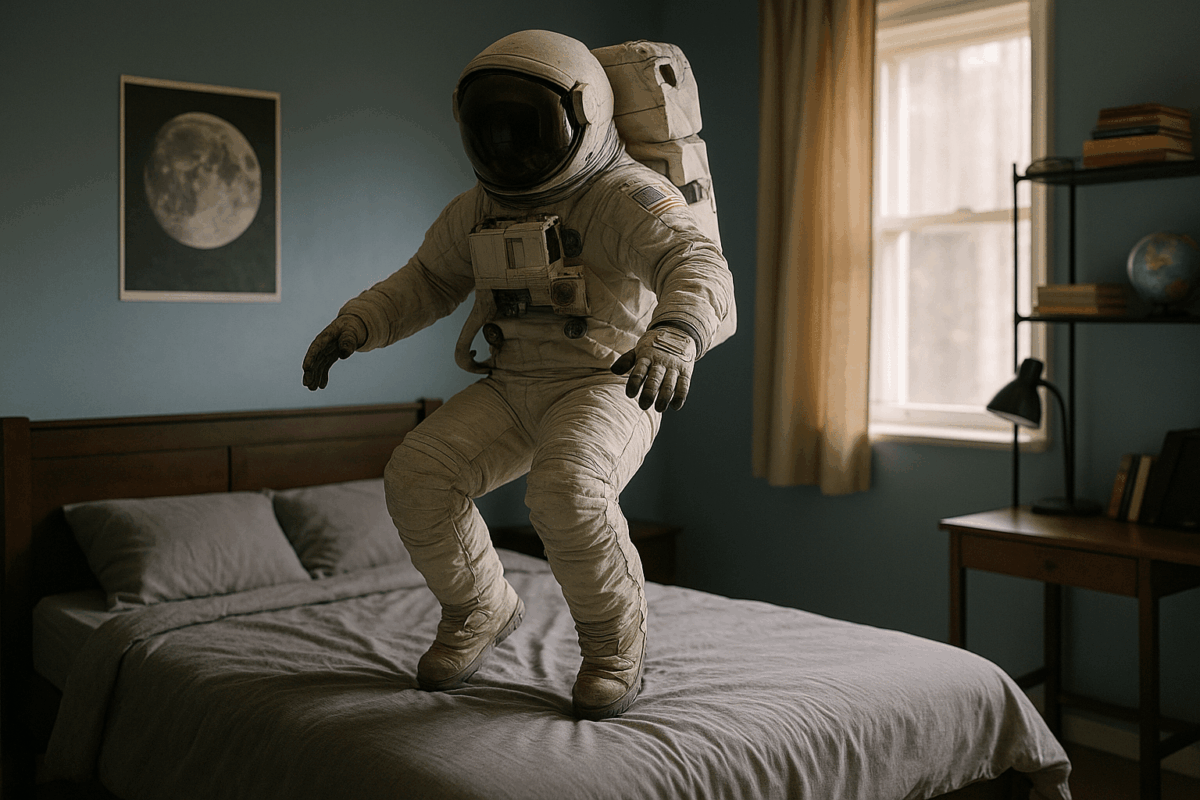Dreams in space represent one of the most extraordinary and scientifically fascinating aspects of human sleep experiences beyond Earth. Dreams in space transform into something completely unprecedented when humans leave our planet. In the vast silence of space, where time blurs and gravity disappears, these nocturnal visions become more than just subconscious flickers—they evolve into surreal narratives shaped by isolation, zero gravity, and breathtaking views of Earth. For astronauts aboard the International Space Station (ISS), dreams in space challenge everything we understand about sleep, consciousness, and the human mind’s adaptation to extreme environments. Understanding these cosmic sleep experiences reveals how profoundly our sleeping minds adapt to the most extraordinary conditions imaginable.
The remarkable world of dreams in space opens new frontiers in sleep science and psychology. These extraordinary experiences occur in conditions that fundamentally alter human physiology and consciousness, creating unique dream experiences that no earthbound sleeper could imagine. Today, we’ll explore the astonishing realm of space-based dreaming, examining the science, psychology, and emotional depth behind what astronauts experience while sleeping among the stars, and how these cosmic visions are reshaping our understanding of human consciousness beyond Earth.
🚀 Ready to explore the universe of cosmic sleep experiences? Discover astronomical dream analysis with the Dreamly App – your cosmic companion for understanding dreams beyond Earth.

Zero Gravity Sleep: How Astronauts Dream Beyond Earth
Sleep in space represents a carefully engineered necessity. Furthermore, it fundamentally alters the conditions for nocturnal visions. Without gravity, astronauts must strap themselves into sleeping bags. These bags are affixed to walls or ceilings. Consequently, this creates an entirely new context for dreaming to unfold. The absence of traditional beds impacts the body’s circadian rhythm. Similarly, the constant floating sensation profoundly affects sleep quality. As a result, both factors directly influence the content of these extraordinary sleep experiences.
The Neuroscience of Space-Based Sleep
According to NASA sleep research, the microgravity environment creates unique conditions for dreaming. Specifically, it alters brain chemistry and neural pathways. Light exposure is critical to regulating sleep cycles. However, this is distorted aboard the ISS. In fact, the sun rises and sets 16 times a day there. Therefore, this creates unprecedented challenges for natural sleep patterns.
These extraordinary conditions lead to several unique characteristics of space-based dreaming:
Physiological Factors Affecting Space Sleep
- Fragmented Sleep Cycles: Dreams occur in altered REM cycles. This happens due to disrupted circadian rhythms.
- Altered Brain Chemistry: Microgravity affects neurotransmitter production. Consequently, this influences dream content and intensity.
- Sensory Deprivation: Lack of gravity-based sensory input creates unique conditions. Therefore, dream formation differs significantly from Earth.
- Sleep Deprivation Effects: NASA reports that sleep deprivation intensifies emotional content. This particularly affects astronaut dreams.
- Cardiovascular Changes: Altered blood flow to the brain impacts dream vividness. Similarly, it affects dream recall abilities.
These physiological changes create the foundation for space-based dreams. Moreover, they are fundamentally different from any earthbound sleep experience. As a result, they open new avenues for understanding human consciousness in extreme environments.
Psychological Challenges: Isolation, Stress, and Cosmic Sleep
In space, the mind processes far more than physical stimuli when creating nocturnal visions. Astronauts must cope with extreme confinement and unprecedented isolation. Additionally, they face the ever-present awareness of danger. These factors create fertile ground for intense and unusual dream experiences. Furthermore, these psychological stressors significantly influence the content of space-based dreams. They also affect the emotional intensity of these experiences.
Emotional Patterns in Space Dreams
Common Psychological Themes
Research from space psychology studies shows that astronaut dreams often feature specific emotional themes. These themes reflect the unique psychological challenges of space travel. Some astronauts report recurring dreams of home. Others experience surreal reunions with loved ones. Additionally, some have abstract visions filled with light and motion. These visions seem to compensate for the sensory limitations of space.
Emotional Release
Space dreams act as psychological valves. They release repressed emotions and process isolation stress.
Social Connection
These dreams often simulate human contact. Consequently, they compensate for the lack of physical social interaction in space.
Earth Longing
Dreams frequently feature vivid memories of Earth. They also include images of nature and familiar environments.
Transcendent Experiences
Space dreams may include spiritual or cosmic imagery. Therefore, they reflect the profound nature of space travel.
The lack of physical human connection in space makes these dream experiences vital. Moreover, they serve as crucial psychological tools for maintaining mental health. This is particularly important during long-duration missions.

Astronaut Testimonies: Real Experiences from Orbit
Several astronauts have documented their extraordinary dream experiences. These accounts provide invaluable insights into human consciousness adaptation. Furthermore, they reveal the profound ways that space-based dreaming differs from terrestrial sleep experiences.
Notable Astronaut Accounts
Apollo 14 astronaut Edgar Mitchell reported experiencing vivid dreams of peace and unity. This occurred after seeing Earth from the Moon. These nocturnal visions were characterized by profound emotional depth. Additionally, they had spiritual significance that continued to influence his worldview. This influence persisted long after returning to Earth.
International Space Station Experiences
Chris Hadfield, the renowned Canadian astronaut, mentioned having strange dreams during his ISS mission. These dreams were often cinematic in nature. According to space medicine research, these experiences were notably more visual than his earthbound dreams. Moreover, they were less grounded in everyday logic.
Unique Characteristics of Space-Based Dreams
Enhanced Visual Content
Space dreams are often more visually intense than Earth-based dreams. They also tend to be more colorful.
Reduced Logic Constraints
These dreams frequently abandon normal physical laws. Similarly, they ignore logical sequences.
Spiritual Dimensions
Space dreams often include transcendent elements. These are rarely found in terrestrial dreams.
Cosmic Imagery
These dreams frequently feature planetary symbols. They also include stellar and universal settings.
These accounts point to a fundamental shift in dream content. Space-based dreams are often more visual and less grounded in everyday logic. Sometimes they are infused with spiritual or transcendent elements. Therefore, the cosmic environment seems to open new layers of the subconscious. These layers remain dormant on Earth.
The “Overview Effect” and Cosmic Consciousness
One of the most profound psychological experiences reported by astronauts is the “Overview Effect.” This is a cognitive shift that occurs when seeing Earth from space. This transformative experience often triggers awe and interconnectedness. Additionally, it sparks existential reflection that profoundly influences their dream experiences.
How the Overview Effect Shapes Space Dreams
Research published in cognitive psychology journals shows that the Overview Effect creates lasting consciousness changes. These changes continue to influence astronaut dreams long after the initial experience. Furthermore, this emotional state echoes powerfully in their sleep experiences. As a result, it creates unique dream content that reflects seeing Earth from space.
Planetary Imagery and Universal Symbols
Earth-Centered Dream Narratives
Astronauts report dreams filled with planetary imagery and universal symbols. These dreams also feature moments of profound clarity or emotional breakthrough. Moreover, these nocturnal visions often feature Earth as a central symbol. It represents home, unity, and the interconnectedness of all life.
Cosmic Symbolism in Sleep
The dreams influenced by the Overview Effect frequently include universal symbols. These include light, interconnected networks, or cosmic patterns. Therefore, they reflect the astronaut’s expanded consciousness. They also show an altered perspective on humanity’s place in the universe.
It’s as if the subconscious absorbs the vastness of space. Then it plays it back during sleep. Consequently, this creates dreams in space that serve as ongoing integration experiences. These experiences help process the profound psychological transformation of seeing Earth from the cosmos.
Future Mars Missions and Sleep Research
As humanity prepares for longer missions to the Moon, Mars, and beyond, understanding astronaut sleep patterns becomes essential. This is crucial for mental health and mission success. Moreover, astronauts on multi-year missions will rely on mental health tools. These include dream analysis and lucid dreaming techniques. Therefore, these tools help maintain psychological stability during extended space travel.
NASA’s Current Sleep Research
Advanced Dream Tracking Technology
NASA is already exploring the role of dream tracking. Additionally, they’re researching targeted memory reactivation during sleep. These techniques improve performance and well-being. Furthermore, advanced monitoring systems are being developed to study sleep patterns. These systems analyze their impact on astronaut health during long-duration missions.
Future Applications of Space Sleep Research
Psychological Support
Dream analysis will help identify mental health challenges. Consequently, it will address these issues during long missions.
Performance Enhancement
Understanding sleep patterns could help optimize astronaut performance. Similarly, it could improve decision-making abilities.
Adaptation Monitoring
Dream content will serve as indicators of psychological adaptation. Therefore, it helps assess adjustment to space environments.
Mission Planning
Sleep research will inform mission design. Additionally, it will guide crew selection for deep space exploration.
In a future where we may sleep under alien skies, astronaut dreams might become critical. They won’t just be reflections of the mind. Instead, they’ll be essential components of health, adaptation, and survival in the cosmos.
Current Research on Space-Based Sleep
Cutting-Edge Studies on Astronaut Sleep
Current research from the European Space Agency and NASA is revealing fascinating insights. These studies focus on how astronauts sleep and dream beyond Earth. Moreover, studies show that microgravity affects brain wave patterns during REM sleep. Consequently, this creates unique conditions for dreaming. These conditions have no earthbound equivalent.
Neurological Changes in Microgravity
Brain Adaptation to Zero Gravity
Research reveals that prolonged exposure to microgravity creates measurable changes in brain structure. Additionally, it affects brain function that directly impacts dream experiences. These neurological adaptations include altered neural pathway formation. Furthermore, they involve changes in neurotransmitter production. Therefore, these changes influence dream content and intensity.
Implications for Human Consciousness
Space sleep research is revealing new insights about human consciousness. Moreover, it shows consciousness adaptability to extreme environments. The study of astronaut dreams is contributing to our understanding of the human mind. Specifically, it reveals how the mind maintains psychological equilibrium. This occurs in conditions that challenge every aspect of normal human experience.
Practical Applications Beyond Space Exploration
Understanding how astronauts sleep and dream has practical applications beyond space exploration. The insights gained from studying space-based sleep experiences are informing terrestrial sleep research. Additionally, they contribute to isolation psychology and extreme environment adaptation studies.
Earth-Based Medical Applications
Medical and Therapeutic Uses
- Isolation therapy: Space sleep research informs treatment for extreme isolation conditions.
- Sleep disorder treatment: Insights from astronaut sleep help develop new approaches. Therefore, they improve sleep problem solutions.
- Sensory deprivation therapy: Understanding space sleep improves therapeutic applications. Moreover, it enhances sensory reduction techniques.
- Trauma recovery: Space sleep patterns inform treatment for isolation-related trauma. Consequently, they provide new therapeutic approaches.
Training and Preparation
Astronaut Training Programs
Understanding space-based sleep is now integral to astronaut training programs. It helps future space travelers prepare for psychological challenges. Additionally, training includes techniques for managing dream content. Moreover, it teaches using sleep experiences for psychological well-being.
The Future of Human Consciousness Beyond Earth
Dreams in space represent more than scientific curiosities. They reveal the remarkable adaptability of human consciousness to extreme conditions. These experiences represent a merging of biology, environment, and emotion. Furthermore, they occur in conditions that challenge every aspect of normal human experience.
As we continue to reach for the stars, our subconscious comes with us. It does so through these extraordinary sleep experiences. Moreover, these experiences evolve, adapt, and reflect our deepest hopes and fears. They also capture our sense of wonder about the cosmos. Therefore, space-based dreams show us that even in alien environments, human consciousness finds ways to process and adapt. Additionally, it maintains psychological equilibrium.
The study of astronaut sleep is opening new frontiers in understanding human consciousness. It also advances sleep science and reveals the remarkable capacity of the human mind. This capacity allows adaptation to environments that our species never evolved to experience. Consequently, these cosmic sleep experiences remind us that wherever humans go in the universe, our dreams will follow. They serve as bridges between our earthbound origins and our cosmic destiny.
In the profound silence of space, these nocturnal visions may be the loudest echoes of who we truly are. They show us as a species that is adaptable, resilient, and forever reaching toward the stars. Moreover, they reveal that we carry the essence of our humanity in the theater of sleep and dreams.
Explore Your Own Dream Universe
Ready to understand the cosmic dimensions of your own dreams? Download the Dreamly App now and discover how your dreams might connect to the broader human experience. Moreover, learn about consciousness and exploration. Your journey into understanding sleep experiences begins with your own nocturnal adventures!







